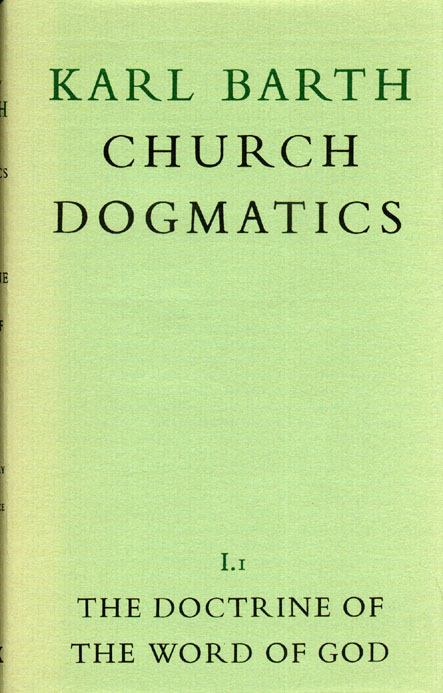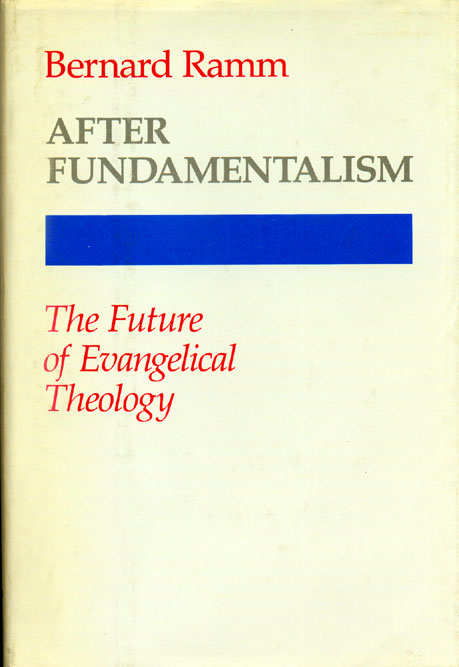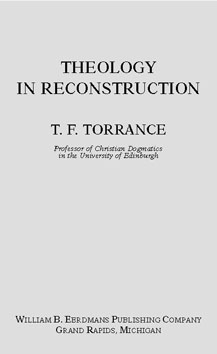Theology: On Theology of the Word of God
Karl Barth’s concept of the threefold form of the Word of God may be stated as follows:
- The Word of God is first of all and preeminently the Person of the Lord Jesus Christ.
- The Word of God appears in written form as the Holy Scriptures of the people of God, the Bible of the Old and New Testaments.
- The Word of God is the proclamation of the church of Jesus Christ as the revelation of his Father by the Spirit of God.
This three-in-one concept of the Word confronts us with a dynamic reality whose intelligibility is to be grasped with the rigors and precision inherent in knowing God in this way in this world.
God’s divine freedom
The Word of God comes to us in his divine freedom. He is God who comes personally and freely as a man among his people. The Holy Scriptures are the written form of this Word. The canon of this literature bears witness to his majestic truth.
With his truth, the Lord God has established his dialogue canonically between himself and his people. With it, his people are made to hear his Word and to proclaim him in the world.
The Word of God comes as a man within the structures of the created world for his own purposes. He is in this way the fulfillment of the ancient covenanted promises to Israel. The dynamic character of this dialogue, with its commands and promises, shapes the substance of his people’s hearing. We are listeners being formed to understand and proclaim the very Word that he is when he speaks to us.
Jesus of Nazareth is the Christ of Israel’s prophetic hope. He spoke the heavens and earth into existence. He spoke to Abraham and then with the fathers of Israel’s faith. He spoke with Moses and David, and then through Israel’s prophets. He spoke through the apostles, and he speaks through them still with the Bible.
When the church began to proclaim this speaking of God’s Word within the Greco-Roman world, it was on the attack. The church had to attack the very foundations of knowledge that prevailed throughout the Roman Empire.
The gospel of God in Jesus Christ questioned the way human thought conceived of the reality of God, the cosmos and the human race. A new way for God and humanity to be in this world had been defined. It was not readily accepted.
Israel’s messianic hope was the realization of the covenanted promise the Lord God made with his people. The church was to hear this Word for Israel, his people, and to proclaim him throughout the world. Greek rationalism heard this Word of God as folly. Judaism heard it as blasphemy. The church heard it as the majestic truth of God himself.
The church grew steadily then and flourished. Its faith in Jesus Christ gained for it a certain place and time in world history. World history has since never known itself without the church of Jesus Christ.
The Torah of the Jews and the Pax Romana of the caesars provided no room for this new reality. The Person of the Lord Jesus Christ lit up this darkness in such a way that human knowledge was seen to require an entirely new basis for its development.
Christ had showed the church a whole new way of seeing everything. It was the beginning of a whole new creation, to which all are called even in our own time.
I would argue that this Logos, which became flesh, established a rational basis for understanding the created order and human freedom in the universe that is uniquely the Christian gospel’s contribution to the development of our scientific culture. It attacks the Greek philosophical views of an eternal world and the immortality of the race of men.
This Logos also transforms the views of Judaism. The Creator of the heavens and the earth and his interaction with his creation cannot be divorced from Israel’s redemption. Far from blasphemy, he is the solid truth that the Lord God is faithful to keep his promise to Israel. He is the Holy One in our midst.
This Word challenges, in fact, every idea we possess about the holy and divine, the cosmos of the world, and the humanity of the created orders.
With the revelation of this Logos in mind, Karl Barth, the great Swiss theologian, set out to write his Church Dogmatics. I have found his concept of the Word of God fruitful in my own life and efforts to read and understand the Bible.
I believe that most of the problems the church has faced in the history of its proclamation of the gospel must be resolved with a proper understanding of the intervals of the threefold form of this Logos.
- The interval between the Person of the Lord Jesus Christ and the Bible. With the church’s study and understanding of the Bible as witness to the Word, it learns to speak of his personal reality as the Revelation of God in the world. He himself is then the source of the canonical truth of the biblical world.
This canon of the church’s faith cannot be divorced from the Person of the Lord Jesus Christ. Eternity, history and our times are bound up with this literature. Inspiration, history, historical-critical methods for interpreting the Bible, the relationship of science to the Word of God—all must find their places within the domain of this interval.
- The interval between the Person of the Word of God and the church is bound up with the way his incarnation as this Logos of the Spirit of God creates and commissions the church to proclaim this Word.
Jesus Christ is the union of the divine and human natures of the Lord God and a man in this world. He is the revelation of his Father. These concepts cannot properly be understood without the interval between the church and the Bible. In this domain is established the church doctrine of the Trinity of God.
- The intervals between God and the Bible and God and the church impact upon the interval between the church and the Bible. The church at all times must remain under the authority inherent in the Bible, but it must not worship the Bible.
The church must worship the Word revealed there of the Father and by the Spirit. Biblical interpretation and theology are developed here.
These intervals, distinguished from another and yet dynamically related, are understood as one in a unity that Barth attempts to keep in mind throughout his Church Dogmatics.
Divine and human freedoms are at the poles of these intervals, and I believe they possess the secret of the nature of the covenant relations taught us in the Bible.
My mentor in this theology of the Word of God, Professor Tom Torrance, wrote that the church, in its efforts to proclaim this Word and his kingdom, must face three facts about itself in regard to its mission to the world (Theology in Reconciliation, 1975):
- The church must overcome any built-in obsolescence that endures because of faulty assumptions.
- The church needs to learn to keep from joining the world in its desire to make the world the place and time of its own righteousness.
- The church must recover her mission of healing and reconciliation in the depths of being. Superficial analyses and fashionable assessments about our futures will only land us within our already wounded boundaries, our already fragmented forms, our already alienated individuals and communities. Revelation and reconciliation must be heard together with one another from beginning to end.
We need to learn to live and have our being in the grace and truth of this Word and enjoy him and his life and being forever. May he reconcile us to himself and give us to know him for who he truly is for us in our time.
Resources:
Karl Barth, Church Dogmatics, Volume I, 1 and 2.
Bernard Ramm, After Fundamentalism.
T.F. Torrance, Theology in Reconstruction.
 |  |  |
Author: John McKenna
